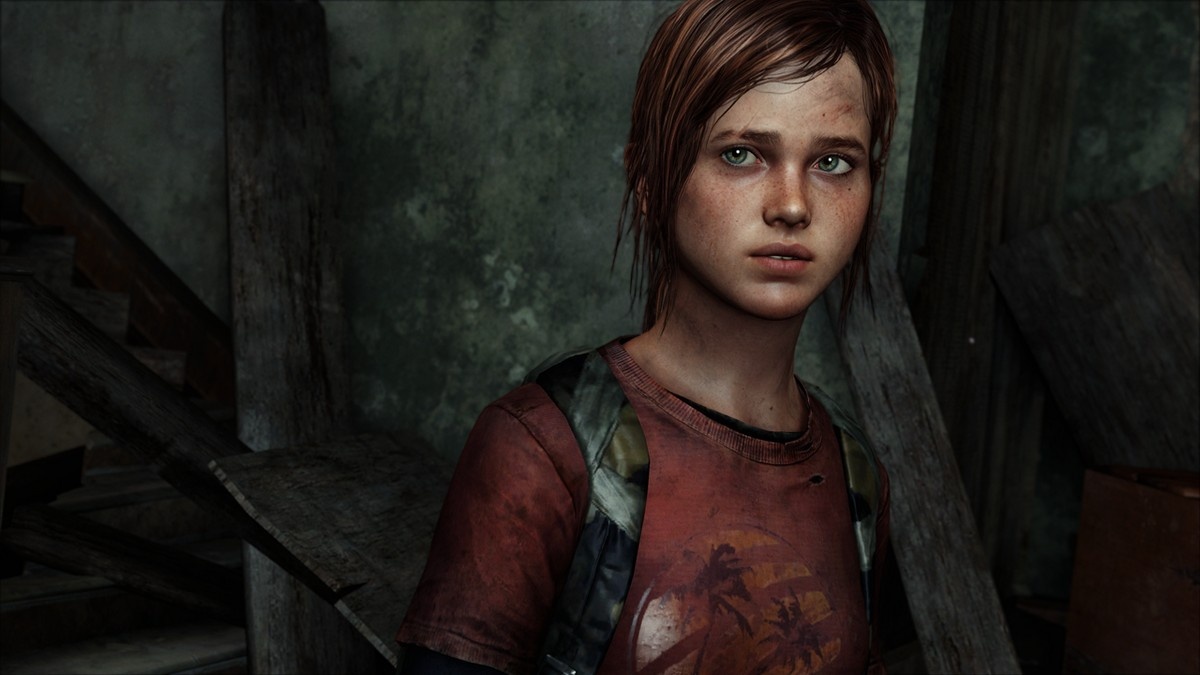Games too often portray women as damsels in distress, says Naughty Dog dev
User interface designer Alexandria Neonakis says, "We need to promote partnership and not continue the cycle of men versus women."

Video games today too often portray women as damsels in distress or as male characters in female bodies, Naughty Dog user interface designer Alexandria Neonakis said in a recent New York Times editorial. Addressing the faults she found in the newspaper's review of The Last of Us, Neonakis said the power and conviction of Ellie's character was a "triumph in storytelling and representation" of female characters.
"She's powerful the whole time, and it had nothing to do with wielding a gun or physical ability. In an industry that more often than not represents women as either a damsel in distress or a male character in a female body, this was a triumph in storytelling and representation," Neonakis said. "Ellie is an entirely playable character. It was not by coincidence that the moments you play as her are the most impactful in the game."
Neonakis also took issue with The New York Time's assertion that Joel was the only main character whose character evolved during the storyline. She acknowledged that Ellie began her adventure in The Last of Us as a damsel in distress, but said she grew to become so much more.
"Her journey from a damsel in distress to a fully capable and complex character is made clear through the relationship she develops with Joel. Likewise, Joel's growth could not have happened without Ellie. This was not a game 'about men.' It was about a mutual relationship and about how people need one another," Neonakis said.
According to Neonakis, the change that the industry needs for female characters is to present them as equals to their male counterparts.
"In our medium, the change needed in female characters is not about women being portrayed as stronger or more capable than men but about being portrayed on equal terms," she said. "I don't want to be treated like I'm more important than my male co-workers. I want to be seen as equal to them. I want to rely on them as much as they rely on me--a true partnership. We have that at Naughty Dog. Our game was made by men and women, some of the most talented in the industry."
Finally, Neonakis jabbed at The New York Times' claim that The Last of Us is "another video game by men, for men, and about men." This statement is particularly problematic, she said, because it gives young women the idea that the industry may not be for them.
"The statement about the game being made by men for men has the potential to be very damaging. It perpetuates the idea that this is not a world for women," Neonakis said. "Young women reading this review who are considering entering games as a career could feel justified in their fears that this industry is not for them. If this thinking is to stop, we need to promote partnership and not continue the cycle of men versus women."
Prior to the release of The Last of Us in June, Naughty Dog revealed that the studio was asked to move Ellie to the back of the game's box. However, the studio "flat-out refused," creative director Neil Druckmann said, because he believes it is a fallacy that games with women on the box will sell fewer copies than those with men.
Fallout 4 Next Gen Update Comparison Stellar Blade - Hard Mode No Damage Gigas Boss Gameplay Stellar Blade - Hard Mode No Damage Abaddon Boss Gameplay Stellar Blade - (Almost) All Outfits Granblue Fantasy: Relink - New Content Trailer Modern Warfare III - New Season 3 Reloaded Modern Warfare Zombies Update Stellar Blade - 13 Things I Wish I Knew S.T.A.L.K.E.R. 2: Heart of Chornobyl — Official "Not a Paradise" Trailer Honkai: Star Rail - "Then Wake to Weep" | Version 2.2 Trailer Devil May Cry: Peak Of Combat | Dante: Blazing Tempest Gameplay Trailer SAND LAND — Official Launch Trailer Sea of Thieves Season 12: Official Content Update Video
Please enter your date of birth to view this video
By clicking 'enter', you agree to GameSpot's
Terms of Use and Privacy Policy
Got a news tip or want to contact us directly? Email news@gamespot.com
Join the conversation